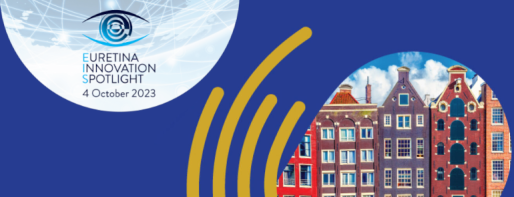A huge number of Euretina Congress delegates filled the Grand Auditorium to hear speakers at the first Euretina Session of the meeting. The session focused on vitreoretinal surgery and specifically centred on evidence-based medicine approaches in cases of retinal detachment and macular holes.
The primary aim of the session was not to share new research findings that retina specialists could implement into practice but rather to stimulate thinking about the quality of various evidence generation methods. To that end, attendees were exposed to research studies representing different investigational approaches and heard critical assessments of the methodology.
Introducing the session, co-moderater Dr Grazie Pertile, Italy, observed that seeking the ground truth in surgery, ie, evidence-based medicine, “is kind of a strange topic”.
“We know that randomised controlled trials (RCTs) are the gold standard, but in some clinical areas, RCTs are difficult to obtain, and some aspects of surgery present special difficulties for conducting randomised trials,” she said.
Dr Grazie reviewed the challenges of conducting RCTs in surgery and issues that can confound the results, naming difficulty with blinding, the possibility of diverse approaches to a surgical procedure, and the impact of the learning curve, among others.
Next she introduced Dr John Norrie, United Kingdom, a professor of medical statistics and clinical trials methodology, who provided more insight on the challenges of acquiring evidence-based medicine in retinal surgery. Reiterating that RCTs are considered the gold standard for evidence-based medicine, Dr Norrie pointed out that RCTs can also suffer from massive difficulties. Alternatively, a lot can be learned from analyses of observational data, he said.
“The critical thing is that both randomised and observational designs can produce high quality evidence, and both can produce low quality evidence. Some registry type data are curated to a high degree, and they can also produce findings quickly,” said Dr Norrie.
Leading off the presentations highlighting different study methodologies, Dr Friederike Schaub, Germany discussed the PRIVENT trial, a randomised, double-blind, international, multicentre study designed to see if pharmacological intervention with verum could reduce the development of proliferative vitreoretinopathy (PVR) after surgical repair of rhegmatogenous retinal detachment. Although the study was designed based on previous research indicating that eyes at high risk for PVR would benefit from verum, it failed to show any differences in primary and secondary outcome measures between the treatment and control groups. Dr Schaub highlighted features of the study’s methodology that might explain the outcomes and emphasised the importance of publishing studies with negative results.
In the next presentation, Dr David Yorston, United Kingdom discussed findings from analyses of the BEAVRS and EURETINA database that explored the question, Does early surgery improve visual outcome in successfully treated macula off retinal detachments?. He noted that while an RCT may be an obvious way to answer this question, achieving IRB approval and patient recruitment goals for a study deliberately allocating participants to delayed surgery would be difficult.
Dr Yorston explained the positive features of the database analysis methodology and also acknowledged its limitations.
The last two presentations of the session focused on research relating to outcomes of macular hole surgery.
Registered delegates interested in learning more about critical assessment of clinical trial methodology can access the entire session on demand.


